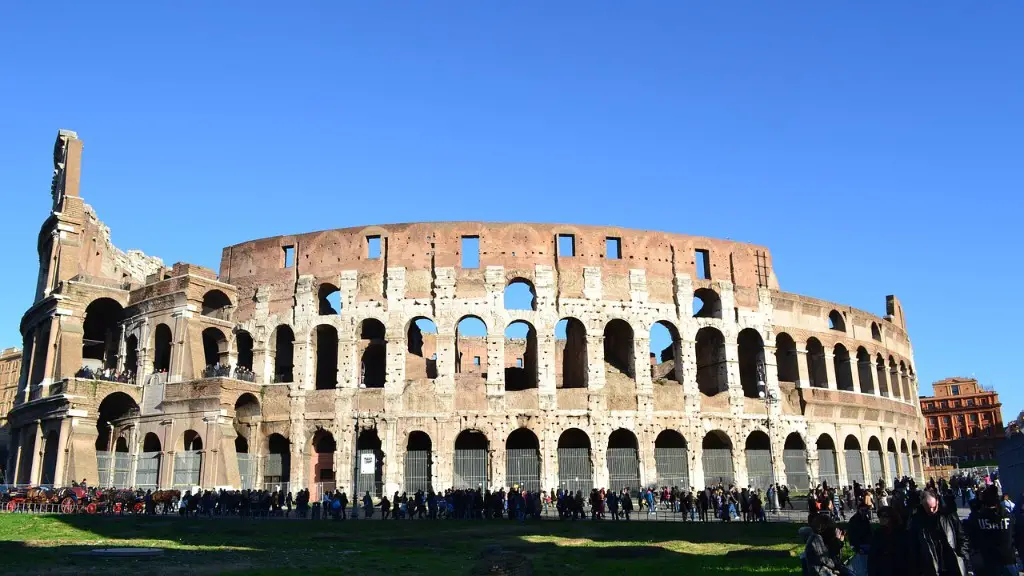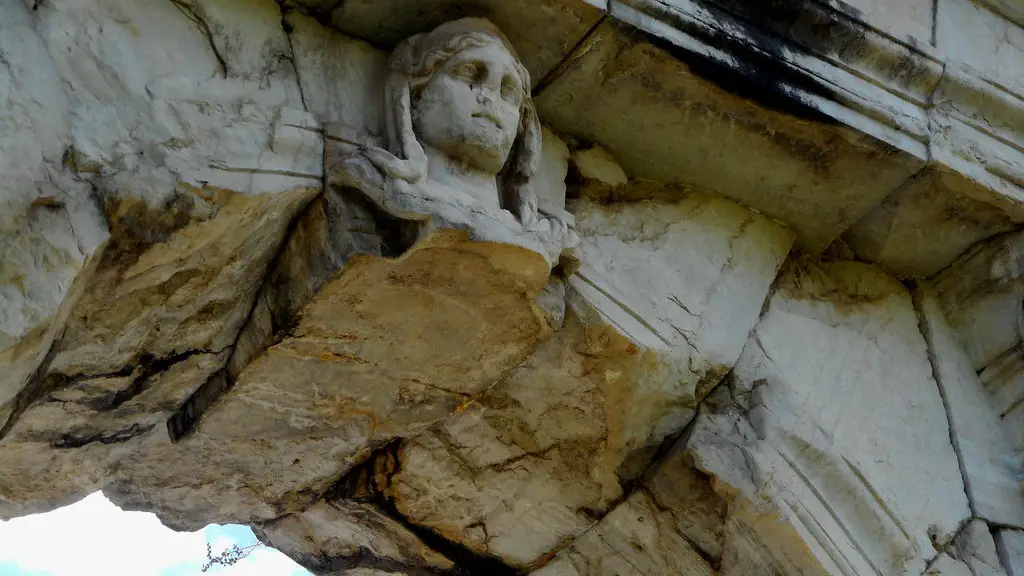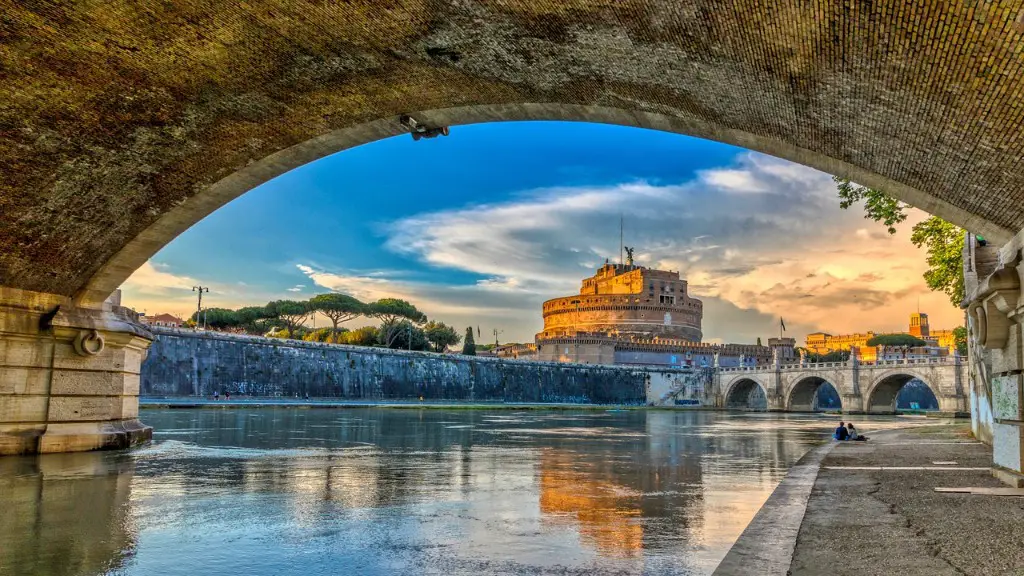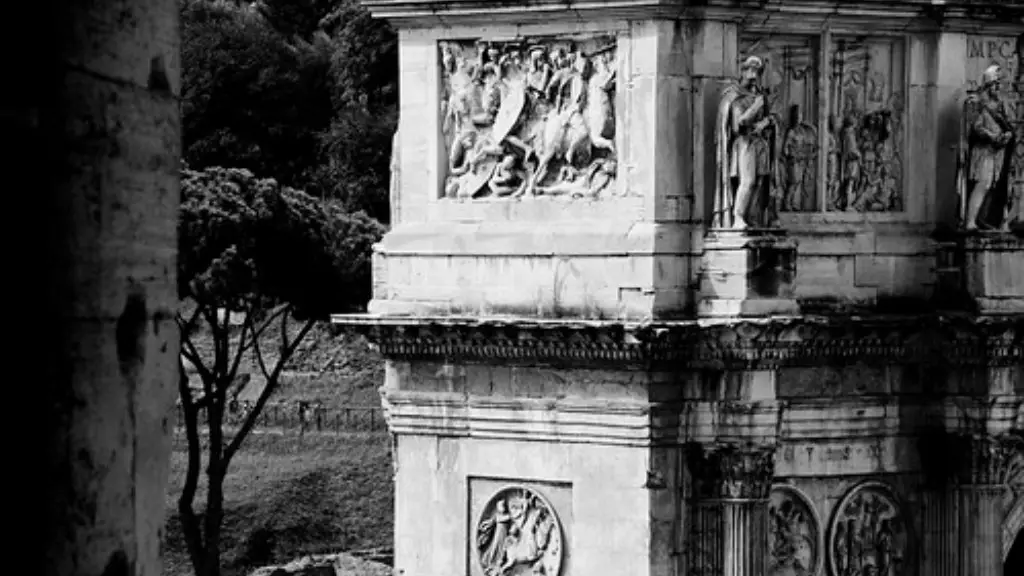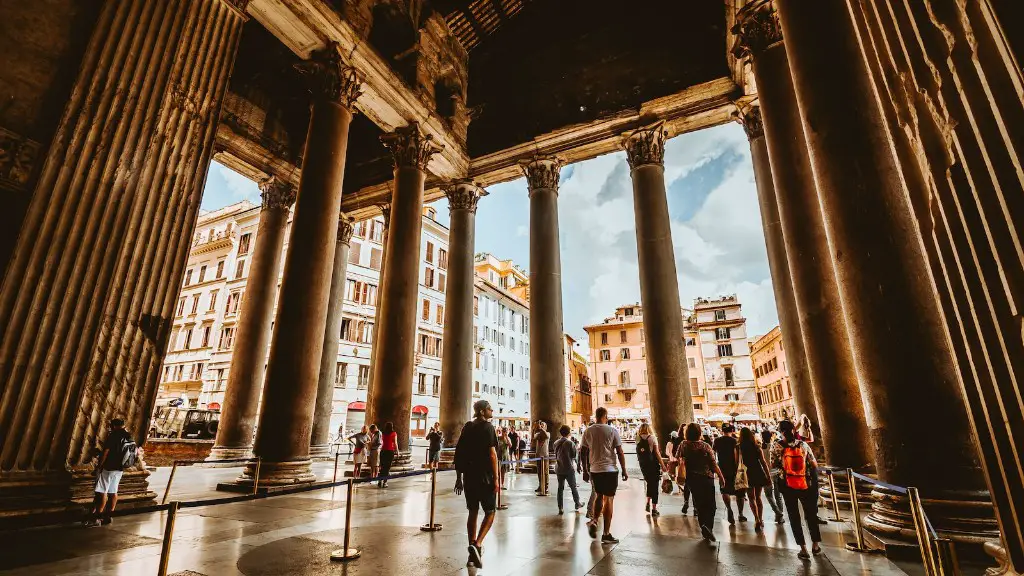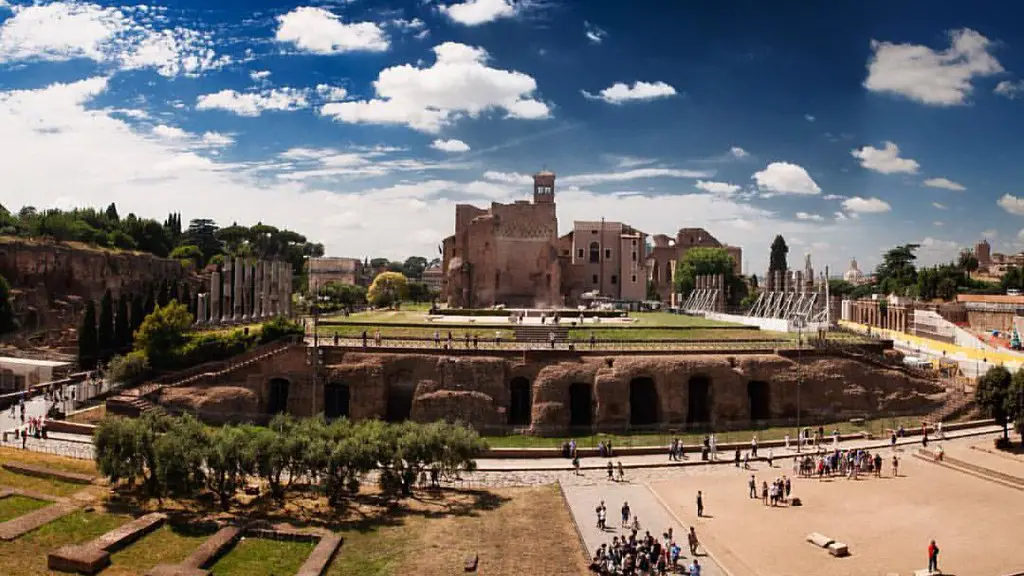Freedmen in Ancient Rome played a significant impact in the society and economy of Rome, both during and after the reign of the Roman Empire. Freedmen were formerly enslaved people who then gained freedom and the right to hold property and to pursue a line of work – skills that had been instilled in them through their years of enslavement. This article will discuss the importance of freedmen in Ancient Rome, as well as their struggles and triumphs.
The Roman Empire was built on enslavement. Slaves were used to provide services and labour for the wealthy and landed classes, as well as for the state. As a consequence, the empire relied heavily upon slave labourers in order to construct and maintain the machinery of empire. As such, the community of freedmen in Ancient Rome were essential to the functioning of the state.
Freedmen were drawn from a variety of places – from across Europe, Africa, and the Near East. The majority of freedmen had been bought as slaves, whilst some were gifted as part of a diplomatic exchange. Slaves who were freed were granted a number of rights, such as the right to legally marry and own property. Whilst these rights marked a new level of freedom, they were still not equal to those of the citizens of Ancient Rome.
Freedmen in Ancient Rome played an invaluable role in the economy of the city. They provided a valuable source of labour and expertise, which was essential to the functioning of the economy. They worked in a variety of trades – from artisans, to architects, to shipwrights. This expertise was of immense value to the city, as it enabled the creation and maintenance of many of its public works. Freedmen could also purchase land, thereby increasing their level of financial stability and affluence.
Despite the fact that freedmen were essential to the functioning of the Roman economy and were able to acquire some rights, their position in Rome was still precarious. Freedmen were not allowed to hold public office or become citizens, and were subject to restrictions on their rights to buy, sell and own property. These restrictions were in place to limit their economic power, so that they could not compete with the elites of Rome.
The life of a freedman in Ancient Rome was far from easy, despite the opportunities they had gained through their freedom. Freedmen were still expected to obey their former masters and to serve in their army; they were also not allowed to receive inheritance from their former owners, and they suffered restrictions on their movements and their religious practices. Furthermore, freedmen faced persistent discrimination in the workplace, as they were not allowed to work in many trades and professions.
Despite these restrictions, freedmen had achieved a level of autonomy and freedom that had previously been denied to them. Freedmen were able to access public spaces and participate in many aspects of public life. Although their access to power and influence was limited, they were able to carve out a role for themselves in Roman society and take part in the political sphere.
Economic Opportunities For Freedmen
The economic opportunities that were available to freedmen in Ancient Rome were limited in comparison to other citizens. Freedmen were unable to hold public office, but they did have the opportunity to purchase land and enter into a range of contracts. This enabled them to produce goods, provide services and engage in trade. As a result, some banished individuals and slave-owners freed their slaves in order to take advantage of their skills and abilities in business. In this way, freedmen were able to play a role in the economy of Rome.
This level of economic freedom also gave rise to the existence of freedmen guilds – associations of freedmen who worked together to pursue a common interest, whether it was the negotiation of better terms for their labour, or the provision of goods for sale. These guilds were also an important form of social organisation, providing a platform for freedmen to come together, share advice and experiences, and build friendships.
Freedmen were also able to take advantage of the patronage of their former owners, and use it to advance their economic and social interests. Patronage provided a level of protection, both legal and social, and enabled freedmen to access opportunities that would have been unavailable to them without it. In this way, freedmen were able to develop successful businesses, and to become wealthy, owning property, and engaging in philanthropic activities.
Political Representation Of Freedmen
Freedmen in Ancient Rome were unable to hold public office and could not be citizens. However, freedmen were still able to exercise their political power in other ways. In particular, freedmen sometimes held informal roles as intermediaries between their former owners and Roman elites. This enabled them to access power and influence behind the scenes, and to advocate for their interests, even if they could not hold public office.
Freedmen also had the opportunity to participate in public meetings and debate political matters, either directly or indirectly. This allowed them to influence policy and the direction of the state. Furthermore, freedmen could take part in the religious cults and ceremonies of the Roman gods, giving them a degree of power and influence within their society. In this way, freedmen could access the power of the gods and goddesses, and exercise a form of informal, spiritual power within the religious sphere.
Whilst being denied the right to vote, they were still able to participate in other aspects of political life. For instance, freedmen could form political alliances and join political clubs where they could share ideas and engage in debates. This gave them a voice and their own opinion about the future of their society.
In addition, freedmen could also act as patrons for their communities, providing them with useful goods and services. This enabled them to exert influence in their communities, by providing support and access to powerful political allies. In this way, freedmen were able to play an important role in Ancient Roman politics, even if they were not officially recognised as citizens.
Social Impact Of Freedman
The presence of freedmen in Ancient Rome had a significant impact on society. Freedmen were an important source of labour and expertise, providing a source of skilled manpower which was essential to the functioning of the state. In this way, they enabled the urbanisation of Rome and its expansion into a sprawling metropolis.
The presence of freedmen also had a positive effect on the economic well-being of the city. Their expertise and labour enabled an increase in economic production, enabling Rome to compete with other major Mediterranean powers. This enabled it to increase its trading activity, providing new economic opportunities for all of its citizens.
Freedmen had a positive impact on Roman society in other ways too. They provided a certain level of stability and security, as their presence ensured that servile labour were not forced to remain in bondage. Furthermore, freedmen made valuable contributions to the cultural life of Rome – their skills as craftsmen and builders enabled the creation and maintenance of many iconic monuments and monuments.
Finally, freedmen provided a voice for those who had previously been excluded from politics and public life. By joining political clubs and gathering in public places, they were able to express their own opinion and offer advice on political and social issues. In this way, freedmen were able to influence the direction of their society, despite the fact that they could not hold public office.
Societal Attitudes To Freedmen In Ancient Rome
Freedmen in Ancient Rome were both respected and feared. On the one hand, they symbolised the freedom and emancipation of those who had previously been held in bondage, and provided tangible proof that it was possible to escape servitude and achieve freedom. On the other hand, freedmen were also seen as a potential threat to the existing power structure, as their newfound freedom and power could potentially be used to challenge the hegemony of the ruling classes.
Nevertheless, as time went on, freedmen were more widely accepted within Roman society. This can be attributed, in part, to their considerable contributions to the economic and cultural life of the city, as well as the increasing number of freedmen who had joined the upper classes of Roman society. As a result, freedmen had become an integral part of Roman society, and were generally well-respected.
Freedmen in Ancient Rome played an important role in the city’s social, economic and political life. Despite the restrictions they faced, and the discrimination they endured, freedmen were able to carve out a role for themselves in Roman society and make important contributions to the development of the city. In doing so, they left an important legacy that continues to be relevant in the present day.
Legacy Of Freedmen In Ancient Rome
The legacy of freedmen in Ancient Rome is an important one. In particular, the concept of manumission – the act of freeing a slave – was one that had an immense impact on subsequent societies. Manumission has been cited as an important factor in the abolition of slavery in both the United States and Europe, and it was a concept that was born in Rome, with freedmen playing a major role in establishing it.
Furthermore, freedmen helped to shape the economic and social fabric of Roman society. They provided much-needed expertise and skills, as well as a valuable source of labour, which enabled Rome to develop into a powerful and prosperous city. In addition, they played an important role in the political life of Rome, acting as informal intermediaries between the powerful and the dispossessed.
Finally, freedmen provided a beacon of hope for those who had previously been held in captivity, inspiring them to pursue their own freedom and seek a better life for themselves. In doing so, they provided evidence of the immense power of freedom and emancipation, something that resonates to this very day.
